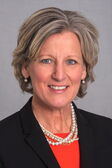
Processing Your Payment
Please do not leave this page until complete. This can take a few moments.
- News
-
Editions
-
- Lists
-
Viewpoints
-
Our Events
-
Event Info
- Business Leaders of the Year Reception 2025
- Women's Leadership Forum 2025
- On the Road with Mainebiz in Bethel
- Health Care Forum 2025
- On The Road with Mainebiz in Greenville
- On The Road with Mainebiz in Waterville
- Small Business Forum 2025
- Outstanding Women in Business Reception 2025
- On The Road with Mainebiz in Bath
- 60 Ideas in 60 Minutes Portland 2025
- 40 Under 40 Awards Reception 2025
- On The Road with Mainebiz in Lewiston / Auburn
- 60 Ideas in 60 Minutes Bangor 2025
Award Honorees
- 2025 Business Leaders of the Year
- 2024 Women to Watch Honorees
- 2024 Business Leaders of the Year
- 2023 NextUp: 40 Under 40 Honorees
- 2023 Women to Watch Honorees
- 2023 Business Leaders of the Year
- 2022 NextUp: 40 Under 40 Honorees
- 2022 Women to Watch Honorees
- 2022 Business Leaders of the Year
-
-
Calendar
-
Biz Marketplace
- News
- Editions
- Lists
- Viewpoints
-
Our Events
Event Info
- View all Events
- Business Leaders of the Year Reception 2025
- Women's Leadership Forum 2025
- On the Road with Mainebiz in Bethel
- Health Care Forum 2025
- On The Road with Mainebiz in Greenville
- + More
- On The Road with Mainebiz in Waterville
- Small Business Forum 2025
- Outstanding Women in Business Reception 2025
- On The Road with Mainebiz in Bath
- 60 Ideas in 60 Minutes Portland 2025
- 40 Under 40 Awards Reception 2025
- On The Road with Mainebiz in Lewiston / Auburn
- 60 Ideas in 60 Minutes Bangor 2025
- - Less
Award Honorees
- 2025 Business Leaders of the Year
- 2024 Women to Watch Honorees
- 2024 Business Leaders of the Year
- 2023 NextUp: 40 Under 40 Honorees
- 2023 Women to Watch Honorees
- 2023 Business Leaders of the Year
- + More
- 2022 NextUp: 40 Under 40 Honorees
- 2022 Women to Watch Honorees
- 2022 Business Leaders of the Year
- Nomination Forms
- Calendar
- Biz Marketplace
Heroes wanted: Maine's health care employers are hiring more than ever
 File Photo / Courtesy Husson University
Husson University is part of the statewide effort to meet the need for more nurses in Maine. In recent years, it has seen a dramatic increase in the number of nursing students.
File Photo / Courtesy Husson University
Husson University is part of the statewide effort to meet the need for more nurses in Maine. In recent years, it has seen a dramatic increase in the number of nursing students.
 Photo / Courtesy University of Southern Maine
USM’s Simulation Center where students practice clinical tasks
Photo / Courtesy University of Southern Maine
USM’s Simulation Center where students practice clinical tasks
 Photo / Courtesy UNIVERSITY OF MAINE
The University of Maine at Augusta Rockland Center will use an $85,000 gift to expand its teaching resources for nursing and lab technology students.
Photo / Courtesy UNIVERSITY OF MAINE
The University of Maine at Augusta Rockland Center will use an $85,000 gift to expand its teaching resources for nursing and lab technology students.
 Photo / Courtesy Maine Community College System
Students in Eastern Maine Community College’s medical assistant program practice taking vital signs. The one-year program is free to students, part of a short-term training curriculum funded in part by a grant from the Harold Alfond Foundation.
Photo / Courtesy Maine Community College System
Students in Eastern Maine Community College’s medical assistant program practice taking vital signs. The one-year program is free to students, part of a short-term training curriculum funded in part by a grant from the Harold Alfond Foundation.
For several years, Maine health officials and industry experts had issued warnings. The state is running short of nurses. Rural parts of Maine desperately need more physicians. We don’t have enough health care workers.
Then came COVID-19. Almost overnight, demand for health care workers skyrocketed.
As early as mid-March, employment website Glassdoor reported a three-fold increase in job openings across the country, with 61% of the growth occurring in states with the highest rates of coronavirus infection. The most-sought workers, accounting for one-quarter of those jobs: registered nurses.
In one market, Glassdoor reported, 23 nursing jobs had been posted during the last week of February. In the next week, ending March 7, employers advertised 76 of those jobs.
In Maine, the first case of COVID-19 wasn’t reported until March 12. But the state, like others, has scrambled to find workers needed in response to the ongoing public health crisis.


And it’s not just nurses. Workers in diverse health care specialties are serving on the front lines in the war against the coronavirus. As the evening news broadcasts have shown, respiratory therapists, hospital intake specialists, social workers, lab technicians and many more are being applauded as heroes.
“The difference today as compared to prior to COVID is that there are extreme shortages of particular skill sets needed due to the nature of COVID symptoms,” says Paul Bolin, chief human resources officer of Northern Light Health. Northern Light is Maine’s second-largest health care system, with 10 hospitals, 37 primary care centers and over 12,000 employees.
“There is a significant demand nationally for specific skills within health care, such as respiratory therapists, ICU nurses and others.”
The same is true at Central Maine Healthcare, the Lewiston-based system that operates Central Maine Medical Center, Bridgton Hospital and Rumford Hospital.
“We are seeing a need for more critical care-trained nurses, emergency room staff and like everywhere in Maine, respiratory therapists,” says spokeswoman Kate Carlisle. “And of course we are facing a critical nursing shortage in Maine and across the United States.”
Carlisle, Bolin and other health industry professionals agree that the crisis has also shifted demand away from some occupations and clinical specialties. Hospitals have canceled or postponed elective procedures. Some services, especially in ambulatory clinics, have been scaled back.
“Other skill sets, such as surgical schedulers, those working in areas with many elective procedures and outpatient provider practices are not in as great demand. Nationally, some of the positions are being furloughed or put out on layoff due to lack of work,” says Bolin.
The difference today as compared to prior to COVID is that there are extreme shortages of particular skill sets needed due to the nature of COVID symptoms.
— Paul Bolin
Predictions and demographics
Experts also caution that with a new, fast-changing crisis like COVID-19, predictions may be premature.
“It’s simply too soon to tell what kind of long-term effect the pandemic will have on Maine’s health care workforce,” says Becky Schnur, of the Maine Hospital Association.
At Maine Medical Center, the state’s largest hospital and the flagship of the MaineHealth system, officials are also taking a wait-and-see approach.
“It is too early to tell what kind of impact the pandemic will have on health care staffing,” says spokeswoman Caroline Cornish.
One reason it’s hard to forecast the impact is that while staffing needs have suddenly spiked, there’s lag time before new workers are ready to fill the vacancies. Bolin says, “Many of the positions that are in the highest demand require advanced training, so people transitioning to those professions won’t enter the workforce until after they complete their training, such as nursing school.”
In response, the Maine Community College System, the University of Maine System, and other educational institutions are accelerating their training programs for a variety of health occupations. UMaine, for example, is working to double its nursing enrollment before 2025, when Maine is expected to face a shortage of 2,700 nurses.
And that prediction was made before anyone had even heard of COVID-19.
The shortage of nurses and other health care workers is part of a larger trend, says MaineHealth CEO Bill Caron.
Last winter, he talked with Mainebiz about his predictions for 2020 and the future of health care in general. Caron pointed to the state’s demographics, and explained why they make the need for health care employees so acute here.
Maine is already home to the oldest population in the country, and Mainers on average are getting even older. That means a smaller pool of workers to fill jobs in all industries, including health care. But aging in the state has another impact, unique to health care: a growing need for services.
The double whammy of increasing demand for health care and a shrinking supply of people to provide it may soon reach a critical phase, Caron says. “We’re almost in the middle of the two trends converging.”
Back at Northern Light, Bolin is optimistic that other unique attributes of Maine will help the state succeed in attracting health care talent, despite the pandemic.
“We are already seeing heightened interest in Maine’s rural environment from those applying for positions nationally,” he says. “We are a great place to live, work and play, and we are a great place to have a successful career.
“Now more than ever, the rural nature of our state is looking better and better to many. We think that will help us in the long run.”














0 Comments